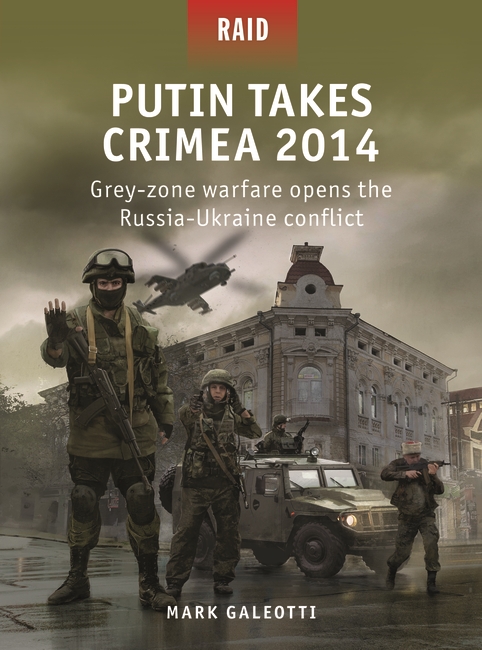
Osprey titles tend, by definition, to be about armed conflict, and the Raid series especially tends to explore highly kinetic and violent special operations. In that context, it may seem strange to have a book about one that saw almost no deaths, very little direct fighting, and more of an emphasis on political manoeuvres and disinformation. Nonetheless, I was keen to write Putin Takes Crimea for a number of reasons, both personal and intellectual.
I was living in Moscow when the so-called 'little green men' — or 'polite people' in Russian parlance — turned up in Crimea at the end of February 2014. Special forces, backed up by a motley array of local allies and volunteers, from Afghan war veterans and pro-Moscow nationalists to thugs from local organized crime gangs, fanned out across the Crimean peninsula, seizing strategic targets and bottling up Ukrainian garrisons. I was still there on 16 March when, having forced the Ukrainian troops to surrender, defect or retreat, Russia annexed it after a rigged referendum. I didn’t get any sleep that night, living as I did on one of Moscow's broad ring roads, as people drove round and round, waving flags, blowing their horns and even blaring patriotic music out of car stereos. Crimea, after all, matters to Russians in a way none of the other occupied and contested regions of Ukraine do, and its 'return' — as they put it — was welcomed by Putin's critics as much as his fans.
It shocked the West, which had not appreciated that Russia's military, still very much in the throes of reform, could carry out such a textbook operation. Yet it also startled the Russians themselves, and arguably gave some, not least Vladimir Putin, an exaggerated sense of their capabilities, and also Ukrainian weakness.
The Crimean annexation was thus arguably the first stage in an undeclared war that included intervention in the turbulent Donbas region, which led to the cataclysmic and catastrophic invasion of February 2022. It also set the 'hybrid war' bandwagon rolling, with all kinds of overheated claims about Moscow pioneering a 'new way of war'.
Of course, there is nothing new about subterfuge and disinformation, about imposing a fait accompli on your enemies and raising local proxies both for cannon fodder and to mark your activities. The Russians did it very well, though, and took full advantage of the degree to which new technological and political realities create new opportunities for this kind of operation. It’s no coincidence that one of their first targets was the local internet exchange. So what is old and what is new?
That is part of what the book is about: not just a detailed analysis of the seizure of the Crimea, but also an attempt to put it into context, from the evolution of such 'political warfare' in Soviet times, to an exploration of how the lessons of this act of hybrid warfare — increasingly now called ‘grey-zone warfare’ — were understood and misunderstood by both the Kremlin and the West. And for me, to close a chapter of my life that opened on 27 February 2014 (and led to my being banned from Russia, but that’s a whole other story).
You can find out more in the book here.


Comments
You must be logged in to comment on this post. Click here to log in.
Submit your comment